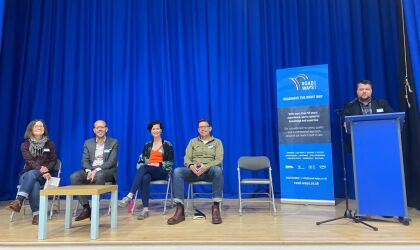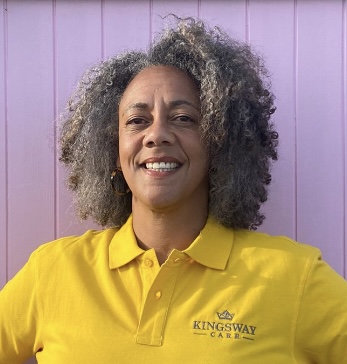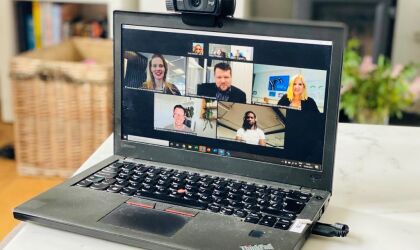

Tue 01 / 11 / 22
A sneak peek ahead of the Big Debate: Where have all the people gone?
Ahead of Brighton Chamber’s next Big Debate on 16 November, our four panellists give us a sneak peak of their thoughts on: Where have all the people gone? - examining the labour market and the pressure on finding the right people.
By Hannah Jackson of Brighton Chamber
The Great Resignation, Quiet Quitting, ‘an employees’ marketplace’. They are phrases that have become familiar during a time when the media is telling us that businesses can’t find talent for their teams.
So, where have all the people gone? At our next Big Debate on 16 November, we’ll be looking at just that – examining the labour market and the pressure on finding the right people, whether these phenomena and headlines are what’s actually happening, and the challenge of recruitment and sustainable employment. Our event chair, Richard Freeman (CEO of always possible), caught up with our four panelists ahead of the debate, for a preview of their take on things.
Lucy Smith, Vicky Haines, Nye Comminetti and Eric Kihlstrom cover a breadth of sectors and industries, from Brighton business to a national perspective. Collectively, they work with people just starting out in their careers, those in the older generation of the workforce, or in industries that have always struggled to find talent – plus the people that pore over the numbers behind the statistics.
Read on for a snippet of what will prove to be a lively and interesting debate.
Lucy Smith, Founder of Digital Grads

What they do in a nutshell: Digital Grads is a training and recruitment platform providing a gateway into tech, media and creative industries for young people leaving university.
What’s the experience of the graduates you’ve been supporting, around the narrative that Gen Z have a wealth of choice around jobs? How close to reality is that?
I don’t think that’s the reality – there are a lot of graduates desperately seeking work. The statistics behind the headlines come from somewhere, but they don’t seem to be true. My understanding of things like the ‘Great Resignation’ is that it’s over 50s leaving the workforce. Not everybody in the country is deciding to quit their job.
What are some of the topics you think will come up at the Big Debate – and what would you like to be asked by the audience?
Generation Z will come up. We’ve done a lot of research on Gen Z and Millennials. The ‘Quiet Quitting’ phenomenon as an example, is an interesting new one that’s come out of TikTok. My view on it is that it’s not an unreasonable expectation to ask employers to let people go home on time, not do projects that aren’t in their job description, or have a slightly different relationship with work. We don’t have to live for work, we can have balance.
Good employers that we work with, that are more forward-thinking, more flexible, are the ones that will do well recruiting graduates.
Eric Kilhstrom, UK Ambassador for Aging2.0

What they do in a nutshell: Eric is a UK Ambassador for Aging2.0, a global innovation network focused on improving quality of life for older people. Eric works on a portfolio of projects spanning the healthy aging spectrum.
At the Big Debate, we’ll be lifting the bonnet on the labour market. You feel this tight labour market is artificial – what do you think has gone wrong, and what are we not really talking about here?
The answer to the question ‘Where are all the people’ is they’re hiding right in front of you. Without agism we would have a lot more people in the labour market. So many people have dropped out of the labour market as a result of agism, that we have an artificially low unemployment rate that doesn’t reflect the people that want to be economically active.
So, what are older people being forced, or choosing to do, rather than take up jobs? Where are they putting their energy and skill?
If you’re in the sandwich generation, aged 45-55, or slightly older, you might be in a generation with increasing needs of care, or you’re caring for elderly parents and children.
It’s not a three-stage life anymore of education, working and retiring. People are living longer, and doing different things throughout their career. It’s about transitions, and supporting older workers to be flexible, retrain, go back to school or train the younger generation.
Vicky Haines, MD Kingsway Care

What they do in a nutshell: Kingsway Care is an independent home care provider, setup on the ethos providing care that we would want to provide for our own family members – having a real relationship with the person who needs care, and their family. They’re also recent winners of the Home Care Provider of the Year award, an amazing achievement considering there are more than 10,000 UK home care providers.
The health and social care sector has perennial challenges, Covid and Brexit aside. What’s the challenge you’ve been facing?
There’s a lack of people coming into the care sector. The demand for care is growing quite intensively, but people aren’t choosing to come into care, because there’s a narrative that the care industry is unskilled - a stopgap, not a career.
Do we as a country, have a split personality around this? During the pandemic, we clap every Thursday and talk grandly about the people on the front line, but people also see it as low skilled, not a career. How can both be true?
During the pandemic, we were praising people saving lives, taking care of vulnerable and older people. Now, it appears to be forgotten. It’s not a career or sector that people put on a pedestal.
And yet, we have a government talking about loneliness, and the importance of companionship. Sometimes, as a carer you’re the only person someone sees in a day. Our ethos is about caring, and spending time with people – taking them for a coffee, going for a walk, rather than rushing from back to back appointments. People look at us saying it’s innovative, but it should be the normal way that care is provided. If we change the way we do things, people are going to look at those careers differently.
Nye Comminetti - Senior Economist, Resolution Foundation

What they do in a nutshell:Resolution Foundation is an independent think tank and research organization, that looks at how what’s happening in the economy is affecting low to middle income households.
From a policy level, what are some of the ways the government might be able to ease some of this?
It’s a complex picture. This shortage of workers is the result of some quite big economic factors. There’s never going to be one thing that’s going to solve this, but there are things that can be done at a government level and for businesses that can help.
At a government level, the way to encourage people into work is not to make life harder for people on benefits – there's no good evidence that reducing benefits will encourage people back into work.
We already have low rates of basic benefits. I would challenge anyone to spend a week living on that type of money. I don’t think that’s the solution.
Instead, I would think about health. The big reason for many people leaving the workplace has been long-term ill health. There are 2.5 million people of working age who can’t work because they have a long term illness – and that’s related to very large NHS waiting lists.

Hannah Jackson is Membership & Marketing Manager at Brighton Chamber.
The Big Debate: Where have all the people gone? is on 16 November at Brighton Girls. Find this and more events, on our events page.
If you want to contribute to the Chamber blog, contact us on hannah@brightonchamber.co.uk



